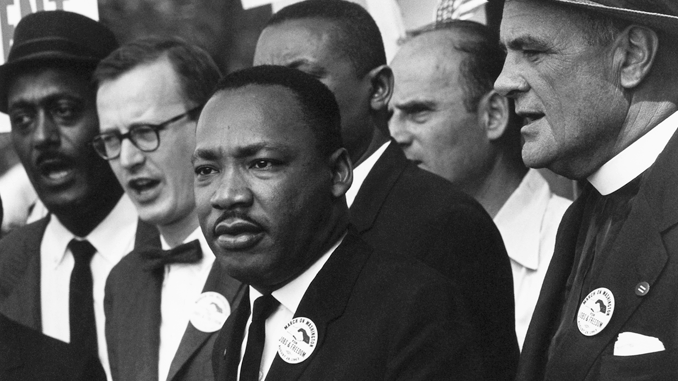
Today is MLK day.
Here are the facts which are likely to be presented in most media outlets: a bill proposing it was introduced into Congress in 1968, following his assassination. The bill stalled, and a version was revived roughly a decade later with the support of King’s widow Coretta and President Jimmy Carter. The effort was narrowly defeated in the House in 1979, and the near-success reinvigorated the supporters, who grew a political coalition to pass it. After getting through the House, the bill for a new holiday faced a significant effort at derailment by a group spearheaded by Senator Jesse Helms.
A key argument at the time was that the US should not group all Presidents together (which had taken place in the early 1970s, shifting Washington’s Birthday to Presidents’ Day) and place them on an equal footing with a single activist, no matter how beloved and important that activist might be. The argument might have held more weight had it not been championed by Helms, who had a long history of racist activity. MLK Day was signed into law by Ronald Reagan in 1983, and officially celebrated in 1986. Some states with large populations opposed to the creation of MLK Day chose instead to celebrate Robert E. Lee’s Birthday… which again added to the impression that racism was their main reason for opposition to the federal holiday.
That’s the basic history of the holiday, which gets reprinted every year.
Martin Luther King, Jr. was an activist for civil rights. He advocated for nonviolence. He wrote a letter during his time incarcerated in Birmingham which politely excoriated white clergy for their dithering and their praise of law enforcement even as the police were brutalizing black protesters, the text of which is now used to teach that he was reluctantly accepting of violence (the opposite is true, as any full reading of the letter demonstrates.) He gave a famous speech about equality during a 1963 March on Washington, presented below. He was assassinated in Memphis, Tennessee in 1968.
That’s the thumbnail history of the man, which gets reprinted every year.
He deserves more. Also, we, Americans, deserve more. That was one of the reasons I wrote a review of one of his lesser-known works in one of my earliest Sunday columns.
The value in MLK comes not from a handful of key moments plucked from a life, but rather in the philosophy which was expounded throughout that life. He was a man who sought not superiority, but equality. Not equality of outcome, not equality of opportunity, but equality of rights. He sought a culmination of the promise which began in the earliest days of the American Revolution: that all people would be afforded the basic dignity due them as members of humanity.
Focusing on the moments, rather than philosophy, is what allows people to cherry-pick failings like accusations of minor plagiarism or cheating on his wife, to focus on specific political policy stances, to celebrate his championing of specific leaders and his reluctance to associate with others. All of that is nothing more than obfuscation, attempts to use his legacy to further personal agendas.
MLK was a founding father, born more than a century too late. This is not said to elevate him in a unique fashion – I feel the same can be said about many others, albeit ones less eloquent or less challenged by events – but rather to recognize what I feel to be a simple truth. He acknowledged the true derivation of American greatness and was willing to risk his life, his liberty and his property so others might further that goal.
On this day, I don’t simply celebrate MLK’s accomplishments. I celebrate the example he provided for the citizens of this country, and I appreciate all who have continued to fight for the philosophy for which he – and thousands of other true patriots – sacrificed everything.
May we strive to be worthy of those sacrifices.

1 Trackback / Pingback
Comments are closed.